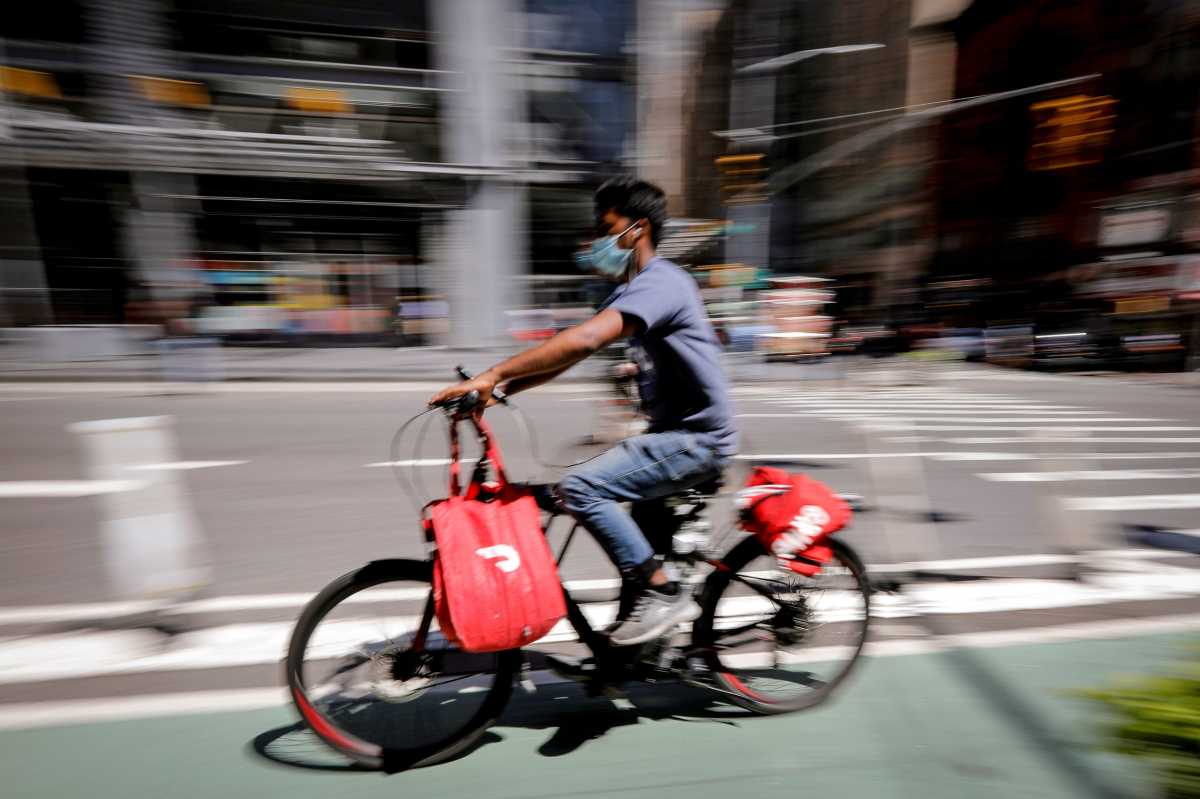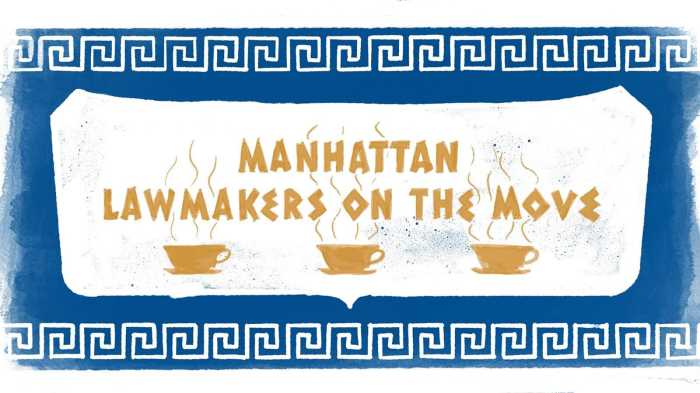City Comptroller Scott Stringer has a letter for Mayor Bill de Blasio calling on protections for delivery workers that includes pay transparency through ordering apps as well as an expansion of protected bike lane infrastructure.
The letter to the mayor plays on the role of delivery workers throughout the COVID-19 pandemic making quarantine possible for New Yorkers in need of food and other amenities while helping businesses remain in operation through indoor and outdoor dining restrictions.
“Perhaps more than any other population, our food delivery workers have embodied the arduous labor and struggles of frontline workers during this pandemic,” Stringer explained in the letter. “Every day and every night, in rain and snow, they have delivered meals to millions of New Yorkers throughout the city and, through their service, have allowed thousands of restaurants and bars to remain open despite severe restrictions on indoor dining. Along with doctors, nurses, teachers, grocery store workers, and numerous other frontline workers, they are the heroes of this pandemic.”
While mandating pay transparency to prevent app services from pillaging delivery workers wages was top of the recommendations by the comptroller as well as a requirement that restaurants allow delivery workers to use restrooms and expansion of bike lane infrastructure that plans for a biking boom.
New York City, after over seven years of Vision Zero, now has a total of 1,375 bike lane miles, 545 of which are protected, according to City Hall. Up to 28.6 miles of protected bike lanes were built in 2020.
Despite this, roughly 24 cyclists were among the 225 reported fatalities on New York City roadways and 2020 is the second deadliest year since 1999 after 2019 saw 29 cyclists killed by the end of the year.
Ligia Guallpa, Executive Director of Worker’s Justice Project, and Jo-Ann Yoo, Executive Director of the Asian American Federation both signed onto the letter in the wake of multiple hate crimes against Asians across the country.
“As an organization that fought to protect immigrant food delivery workers by pushing for the legalization of e-bikes, the Asian American Federation knows firsthand how vulnerable these essential workers are and the conditions they are forced to work in just to support themselves and their families. The City and State each have a role to play to ensure greater protections – really, basic rights – for a workforce that keeps the city running, during and beyond times of crisis,” Yoo said.
The full recommendations laid out in the letter are as follows:
- Food delivery apps must provide full transparency on every purchase so that workers are getting fully compensated and no tips are being withheld.
- Mandate full access to bathrooms at any restaurant for whom they are making a delivery.
- Massively expand protected bike infrastructure and protected bike parking to keep delivery workers safe and their bikes secure.
- Install 50 public bathrooms along commercial corridors throughout the City, benefitting e-delivery workers and all local residents and shoppers.
- Dramatically expand and reform the City’s Crime Victim Assistance Program and the State’s Crime Victims’ Compensation Fund, especially for victims of robbery and hate crimes.
- The City should replicate its success with for-hire vehicle drivers and guarantee a minimum wage (including equipment expenses) for all delivery workers.
- The Department of Buildings and the Department of Transportation should dramatically streamline canopy and awning installation for restaurants so that delivery workers have protection from the elements as they wait to pick up their order.
- Work with our bus shelter franchisee to double the number of shelters throughout the five boroughs and to install heaters in these units. This will provide delivery workers with a place to warm up and benefit all bus riders.
- Work with the State to pass A10974/S9019, sponsored by Assemblymember Robert Carroll (AD-44) and State Senator Julia Salazar (SD-18), subsidizing e-bike purchases up to 50 percent. As independent contractors, delivery workers are responsible for covering all equipment costs. Subsidizing e-bikes will be a boon for these workers—and help all New Yorkers move to a more sustainable future.
- The City should improve outreach for its bike and e-bike registration program, going out into the field to meet delivery workers where they are and, if requested, etching serial numbers into their bikes.
- The City should coordinate with franchises, businesses, the Department of Transportation, and the Department of Buildings to install more outlets throughout the five boroughs. This will help delivery workers to charge their phones and e-bike batteries when needed.

































